Stitch of the Month...Gingham Stitch
- Rebekah Bowen
- Aug 28, 2023
- 3 min read
Ever wonder why certain crochet stitches are better for some patterns and not others? Does using a particular stitch really make a difference in the finished product? Even if you are not a crocheter, having a little bit of stitch knowledge can help you pick the best quality product.
This year I want to find new stitches I haven't used yet. Come along with me as I explore new and fancy stitches and what projects they are best used for.

What Gingham Means to Me
Stylish and classic, gingham crochet stitch is a great stitch for any project. By using two colors of yarn per row, you carry the second color through your stitches, making it much easier than it appears. When I see this pattern I think of picnics, ants, & watermelon and to me it is wonderful representation of summer, but gingham isn't just a great backdrop for summer. It can also conjure images of a roaring fire, crisp snow, reindeer, warmeth, and joy for the Christmas and winter holiday....or darling baby blankets draping over their cribs and beds, plush pillows stacked on couches...there really is no end to the use of gingham.
Creating your own Gingham Style
You can use any single, half double, or double stitch, as well as variations on either. Shopping for the yarn is the most challenging part of this gingham stitch. Purchasing the yarn is the most challenging part of this stitch. You’ll need to find two colors that are in the same family but separated by a few shades and in some cases, even when you hold the skeins together, you won't believe the colors will work together....but give it a chance. You might change your mind once you see the finished product. Another thing to remember when choosing your shades for your project is to get a light, medium and dark color. Most of the time I like to use white and then two shades of the same color. For example, white, light pink and dark pink like in the instructional video from Daisy Farm Crafts. Both the written instructions and video are for a gingham blanket, but you can tailor it to make it any size you want, even as small as hot pads.
Written Instructions:
Chain a multiple of 10 plus 1.
Make the base chain in white and with a smaller size hook (H).
Change hook size to (J), join light pink color with the chain one and turn. Start your next ten. SC with link pink, crocheting over the white yarn, when you get to the tenth SC, do not finish all the way with light pink, stop, pull up the white, pull through, and now do the next ten SC with white, crocheting over the light pink.
Continue changing colors every ten stitches. Do ten rows. At the end of your tenth row, you’ll cut off the white, add in the strawberry, and alternate between strawberry and light pink. (You will be weaving in the white end, do not crochet over the white, you’ll join that back in after ten rows).
MAKE SURE YOU DON’T ACCIDENTALLY MAKE A CHECKERBOARD
There is certainly nothing wrong with checkerboard blankets, but if you’re trying to achieve the gingham look and it turns out like a checkerboard, you’ll probably be disappointed. The simple way to avoid this is to make sure that the medium color is always used in every row. For the first block of color, the medium color alternates with the dark, and in the next block it alternates with the light. If you alternate the white and the dark, your blanket will look checkerboard. (See the difference between the two pictures below).
Video Instructions
Daisy Farms
Never enough gingham
Feast your eyes on all these great projects you can do with the gingham stitch



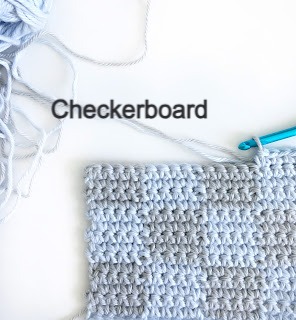
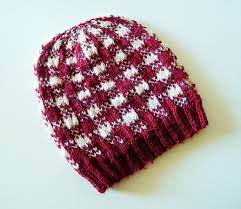



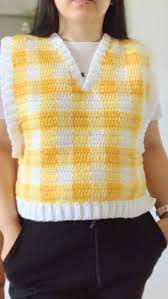


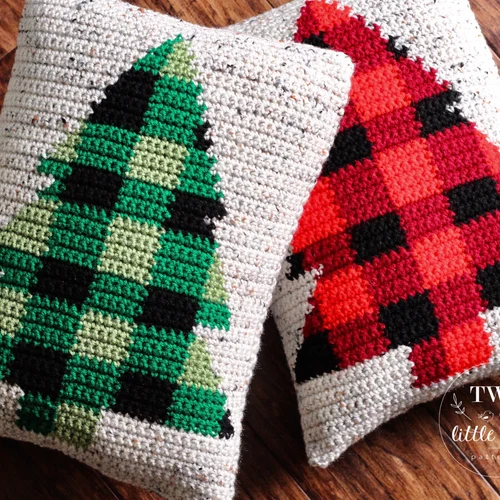


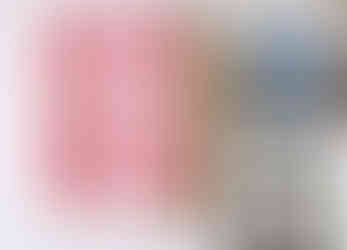



Comments